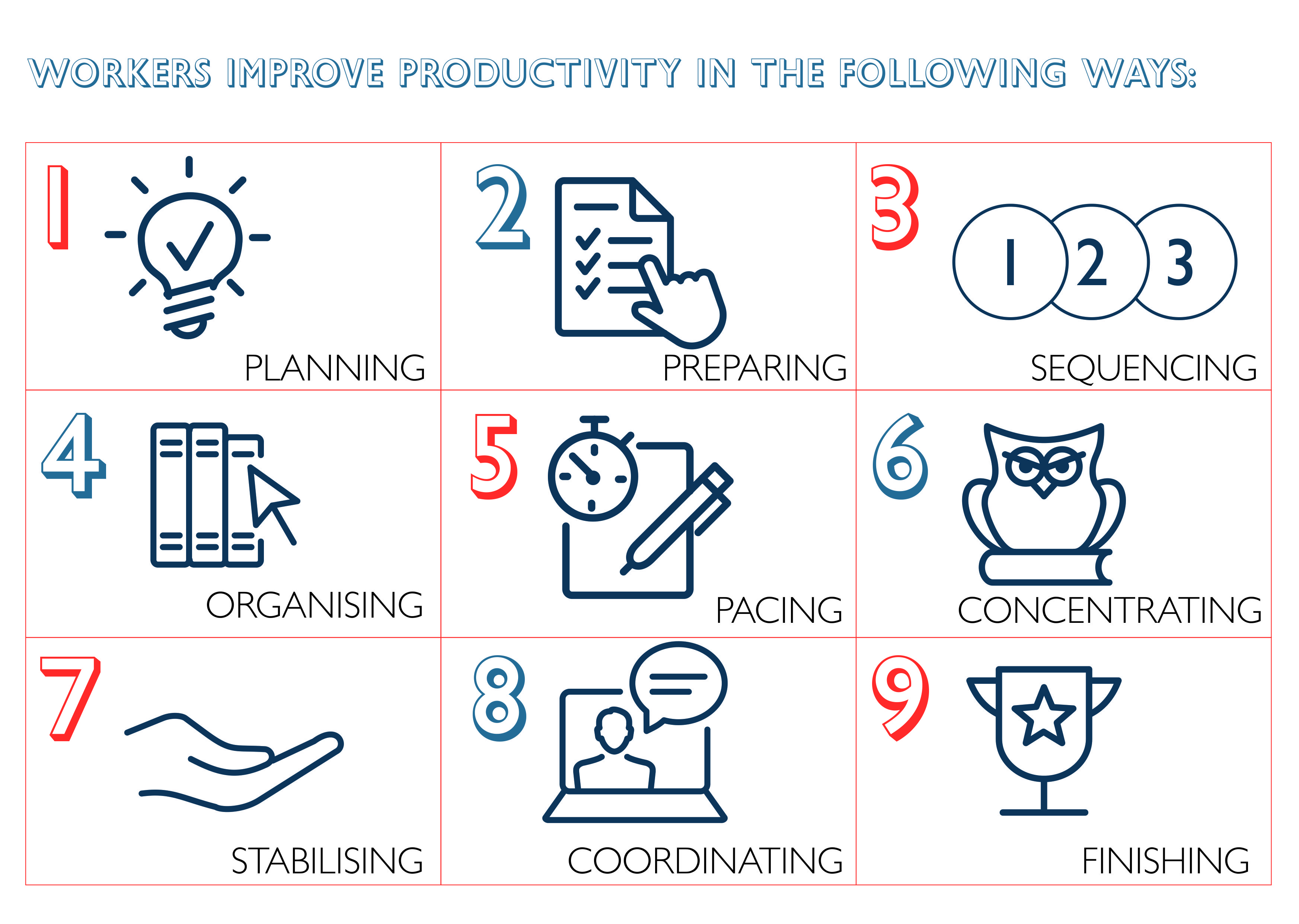Businesses combine labour, capital, raw materials, technology, equipment, and facilities to produce goods and services for the marketplace. Productivity is the amount of output produced by each unit of input. Labour productivity is the output per hour of employment.
Wages and salaries are usually the largest cost factor. If workers improve productivity and produce more output each hour of work and rand of pay, the business will create more profit. It can then afford to pay higher wages and salaries to all workers. More productive individuals who contribute most to the "bottom line" can be rewarded with raises and promotions. Hence, every worker has a stake in becoming more productive.

Planning
Productive workers plan ahead. They can break a job down into tasks and estimate how long each will take. This enables them to plan to keep realistic schedules which allow time to accomplish each task.
Preparing
Productive workers prepare before beginning any task or project. A sales representative or service agent will review a client's file before a meeting. An office manager will prepare a list of products before phoning or visiting the office supply company. Before operating a machine, a productive worker will set it up properly following recommended procedures.
Sequencing
Productive workers will sequence all tasks in the most efficient way. They will do first things first as well as consolidate related steps. For instance, a productive secretary will proof-read an envelope before putting postage on it. If there are several letters, he or she will type, photocopy and then mail all of them out at the same time, rather than doing each one separately. If the post office is next to the office supply store, the efficient secretary will mail letters and get office supplies at the same time. If there is a mailbox on the way to lunch, he or she may wait until lunch to mail out office correspondence.
Organising
Productive workers keep their work areas organised, so they do not waste time looking for misplaced items. Whether working at a desk, a workbench, or a job site, every item should have a place to which it should be returned after use.
Pacing
Productive workers pace themselves to maintain productivity over the work day. They make the most of their high energy periods by doing activities which require concentration. They then perform routine tasks during periods of low energy. They take breaks regularly, so they can sustain both speed and accuracy. They also identify when they are better off quitting and resting than pushing themselves any further.
Concentrating
Productive workers concentrate on work. They separate their personal lives from their work lives. They do not spend work time dealing with personal projects or errands. They do not encourage their friends or family to interrupt their work with phone calls or visits. Neither do they encourage co-workers to distract them with small talk and gossip.
Stabilising
Productive workers do not let their emotions interfere with their productivity. They do not dwell on personal problems at work or let depression interfere with output. They do not lose their temper and take out their problems on co-workers. Nor do they let the emotional problems of other workers interfere with their productivity.
Co-ordinating
Productive workers coordinate their work tasks with co-workers. They are not held up waiting for others and do not hold up others. They also avoid any duplication of effort. A productive worker assigned to something a co-worker had started would first check to see what has already been completed.
Finishing
Productive workers complete what they start. They focus on one task or project at a time and see it through. They do not start the next task until done with the first. They do not begin a task then get weary of it and put off its completion for another day.